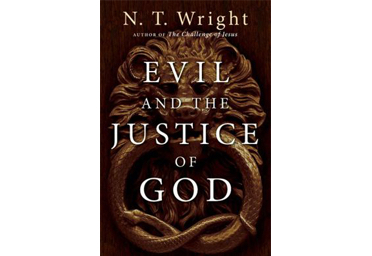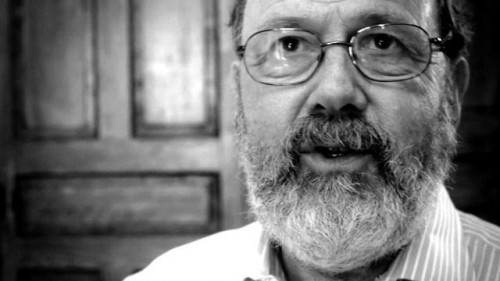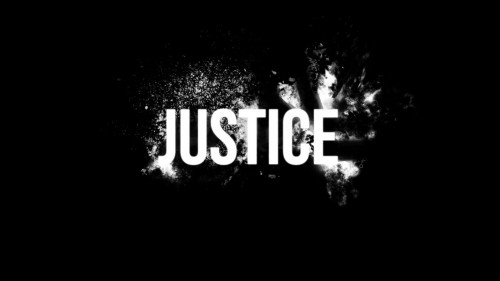BOOK REVIEW: Evil and the Justice of God by N.T. Wright

N.T. Wright’s book Evil and the Justice of God is a thought-provoking, enriching excursion into the deeper currents of biblical theology and our contemporary context. As someone who engages in a lot of justice and mercy ministry, leading and teaching on the streets, this book is a serious aid for a particularly difficult conversation that often comes up in street ministry contexts: why does God let this evil thing happen to me? Anytime one wrestles with the age-old question of “the problem of evil,” I have found that it can go off the rails fairly quickly.
Wright’s book is a helpful resource for approaching this question with sanity, depth, and biblical wisdom. He begins with an integrative statement that our perspectives on “the problem of evil” should be more intimately tied up in what we call ‘atonement’ theology. He proclaims, “we have tended to see what we call ‘atonement theology’ in one box, as having to do with personal salvation from personal sin, and ‘the problem of evil’ including so-called ‘natural evil’ and the general wickedness of the world in another box, as constituting a philosophical or logical problem for a good creator rather than having very much to do with the story the Bible actually tells.”
Wright goes on to make the point that in an overview of the Old Testament’s approach to the problem of evil, the emerging, personified force of evil, that is the satan – the adversary – is important but also not important. He explains quite plainly that the origin of evil remains shrouded in mystery. As he says, “We are still some way from the dragon of Revelation…” The Hebrew scriptures simply do not address the question the way that modern philosophers and scholars prefer. He goes on to expound, “What we are offered instead is stranger and more mysterious: a narrative of God’s projects of justice within a world of injustice.” This, he claims later, is a significant because, “[e]vil isn’t simply a philosopher’s puzzle but a reality which stalks our streets and damages people’s lives…” Our age would do well to reflect upon this and let understanding flow from an engagement-oriented praxis that has a reciprocal and mutual relational with our theology.
With this well in hand, he next turns to the complicated issue that the people of God have both been ‘people of the solution’ and ‘people of the problem’ in our sordid past and present. What he does well is to not get mired in to much detailing of the complications of the past, but while embracing its complexity, Bishop Wright turns to what is probably his greatest depth and strength in explicating the issue of evil and justice via the life, ministry and cross of Christ, and thus we would do well to take his advice to not only re-read the Gospels, but to re-enact them.
In the next section, which is the book’s crux and pivot point, Wright gets down to the deeply practical and theological issues of how Christians engage the Justice of the Kingdom in the ‘here-and-now’ of the ‘now-and-not-yet’. Just like his earlier integration of ‘atonement and the problem of evil’, this is Wright at his interpretive and theological best, placing the Cross of Christ front and center in the context of Justice and the Kingdom of God.
Writing regarding our experience of suffering and of evil in the present, Wright posits that, “…the call of the gospel is for the church to implement the victory of God in the world through suffering love. The cross is not an example to be followed; it is an achievement to be worked out, put into practice. But it is the example nonetheless, because it is the exemplar – the template, the model – for what God now wants to do by his Spirit in the world, through his people.”
As Christians the Kingdom of God in Christ Jesus, both ‘now’ and also ‘not yet’, is our approach to reality as we experience it. Our lives are oriented toward an unflinchingly faith-based approach to all life in light of our experience of the Crucified and Risen King and His Reign. But because we are unflinching, we must face the tension of both Kingdom-now and Kingdom-not-yet. This, Wright expounds, is clear from our Christian scriptures and needs to be taken with the utmost sincerity and clarity.
With due credit and admiration for South African Archbishop Desmond Tutu and a nod to the recently deceased Walter Wink, the small interlude regarding ‘naming the powers’ and the penultimate section of the book is where the oft-times messy issues of forgiveness and reconciliation are re-imagined. Wright does a proper job of summing up the work of these two great men of God and applying both their life’s work to the issue of evil and the Justice of God. As he makes clear, “Evil has a hidden dimension; there is more to it than meets the eye. This extra element, I believe, includes a force or forces which are no less real for being difficult to describe…latent within organizations, companies, societies, legislative bodies and even churches…” This section is not to be missed for those who wish to engage not only in enacting spiritual warfare, but equally cultivating the grace of God in difficult circumstances, with the exemplar of this cultivation being along the trajectory of Tutu’s Truth and Reconciliation Commission.
In the final section, Wright goes out on a personal note, demonstrating his own interpretation of the political implications of evil and the Justice of God. While some readers give a whole-hearted “Amen!” and others criticize this section as a disappointing, Wright calls for forgiveness of third world debt to the first world nations. What he gets right is that the Justice of the Kingdom of God does indeed have political implications and consequences and calls us to act. While at times, this leads to great affinity with other political agendas across the spectrum, it equally can lead to being perceived as traitorous by those same agendas or many other agendas; which I believe puts us in the good company of our Lord Christ Jesus. This indeed is the politics of the people of the Presence, in that our politics will not make sense to much of the world, because, like our trust and faith, it is grounded in Someone wholly other. As a practitioner of preaching, Wright seeks to inform our preaching and teaching along this trajectory, calling us to be open and biblical in our practice of preaching, rather than shy away from wrestling with these thorny issues from the pulpit.
Wright ends Evil and the Justice of God with a call that our theology and our politics must be manifest publicly, as good news to all. What he suggests has been, in my own experience, the implicit politics of the Vineyard movement, that is, “…the life of the future world should begin to infect the present one as much and as far as possible.” An inaugurated eschatological move if there ever was one. As we engage the Justice of God to tackle the world-wide issues of exploitation, racism and poverty, as well as everyday issues such as economic and relational decisions, the Justice of God will be made known through the people of God showing the Love of God as Justice and Mercy kiss in public.
Reviewed by Steven Hamilton


